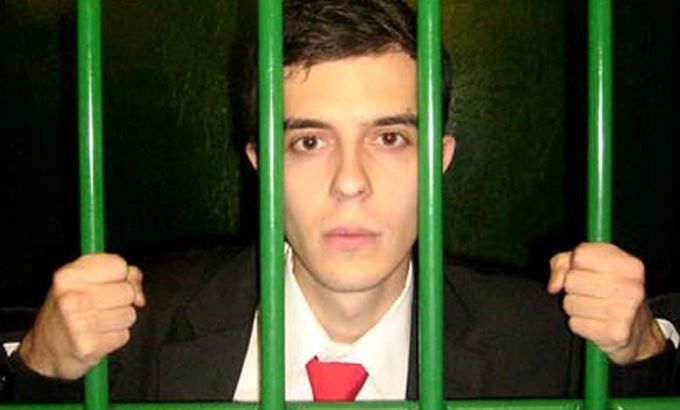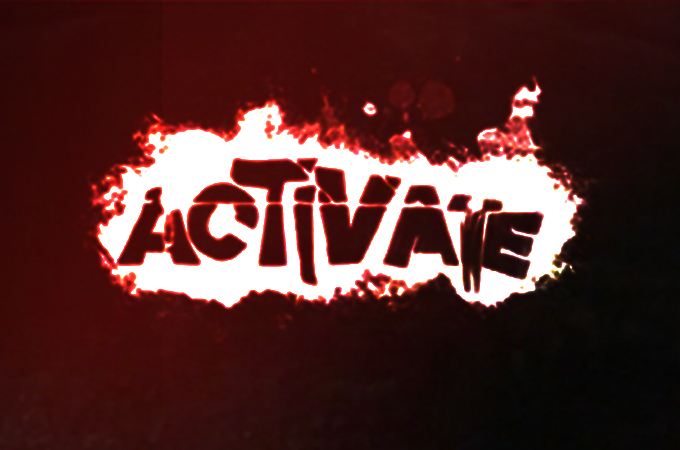
Walking without Putin
One man explains why he has decided to take on the authorities in a bid to stop Russia becoming an authoritarian state.
By Roman Dobrokhotov
I remember how it all began. It was the beginning of 2005 and I was studying to become a political scientist at the Moscow State Institute of International Relations – a great place to start a career as a diplomat or a manager in any large public corporation.
I probably would have continued down that route if Russia was a free and prosperous state. But in my eyes the country has rapidly acquired the features of an authoritarian state.
The disappearance of independent media, the arrest of Mikhail Khodorkovsky (a successful businessman who could have challenged corruption in the Kremlin), the abolition of elections for local governors and the cleansing of the opposition parties from the State Duma – I could not witness this happening and simply look on in silence.
It was during this period that some of my friends and I decided to create a movement, called Walking without Putin. The name was in response to the well-known pro-Putin movement Walking Together.
We wanted to show that there is a large community of young Russians who did not want to wear pictures of Putin on our shirts.
Our first protests made a lot of noise. After the Orange Revolution in Ukraine, everyone expected Walking without Putin to be the equivalent of the Ukrainian organisation, Time – a youth movement that played a significant role in the creation of opposition unrest there.
We made banners in orange and called for a non-violent revolution, seeing as though essential democracy tools such as elections, a free media and the judicial system were useless.
Our movement has never been mainstream but each protest has been recognised by millions of people. A recording of one of our flash mobs quickly spread on the internet and through the liberal media.
The truth is that we did not have to try hard to show the sheer absurdity of the new police regime. In fact, the authorities reacted to us by playing along.
For example, when we went to the White House in Moscow, holding nothing but blank placards with tape over our mouths, police still rounded us up and arrested me for five days.
The effect of this protest was better than a mass rally across the country. The authorities suppress any peaceful demonstration, no matter how big or small.
Over the years we have conducted more than 100 such protests. We wanted to show that this power was not to be feared. That is why we use humour, not aggression, because when you laugh at someone you stop being scared of them.
Many Russians liked what we did, but were reluctant to get involved.
In Russia, people are not used to protesting or questioning wrongdoing. Despite this, we do not get tired of our work and we will not stop calling our fellow citizens to show more courage and to stop ignoring violations of democratic rights and freedoms.
In addition to organising protests, I got a job as a journalist and, through my articles, I tried to reach people, to show them the true picture of what is happening in Russia.
Since last winter, the country has really begun to change. Hundreds of thousands of protesters attend demonstrations in Moscow on a regular basis and people have expressed their intention to take part in a large-scale protest calling for peaceful regime change.
Gandhi once said: “At first, you won’t get noticed. Then people will laugh at you. Then you will begin to fight. And then you will win.”
We are already at the stage where we are fighting actively with the authorities. So everything seems to be going according to plan.
I do not know how to measure my contribution to the changes in our country, what impact our protests have had, what articles I have written, what lectures I have given. But I know that eventually I will be able to say the words of Randle McMurphy, the main character in the movie One Flew Over the Cuckoo’s Nest: “At least I tried.”
You can watch this episode of Activate from Monday, November 19, at the following times GMT: Monday: 2230; Tuesday: 0930; Wednesday: 0330; Thursday: 1630; Friday: 2230; Saturday: 0930; Sunday: 0330; Monday: 1630. Click here to return to the Activate map. |
